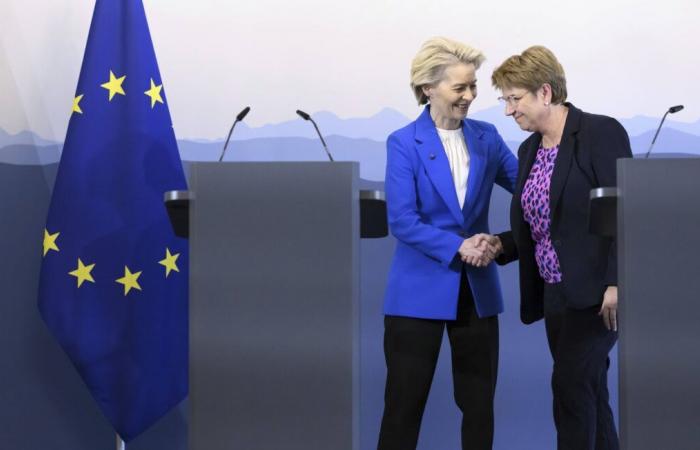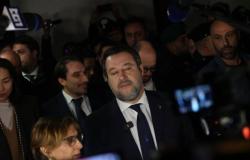“Good and advantageous”. This is how Swiss President Viola Amherd and European Commission President Ursula von der Leyen welcomed the “historic” agreement between the two partners on Friday.
This is only the first step in a long journey strewn with pitfalls for possible adoption by the small Alpine country. It will now be necessary to convince the Swiss Parliament of the merits of the project and above all the people, who will have the last word on this subject which will influence the future of the country. A consultation with an uncertain outcome, especially since there is already no shortage of criticism. But what will this agreement change?
A real simplification
It took hundreds of meetings between diplomats from Brussels and Bern to agree on a series of bilateral agreements which should strengthen cooperation between the two economic partners, currently governed by more than 120 texts. Unlike previous negotiations whose aim was to establish a general framework agreement, the current negotiations opt for a sectoral approach aimed at updating existing bilateral agreements and concluding new ones (electricity and health).
Swiss media, citing diplomatic sources, have affirmed in recent days that all issues have been resolved… with the exception of the amount of the Swiss contribution to the European Cohesion Fund which helps certain countries catch up with their development delay.
Switzerland will have access to a new market
“The negotiations were intense and made it possible to preserve the interests of Switzerland and the EU in a balanced manner. This means that we are able to compete on a level playing field, regardless of market players from Switzerland or the EU, and that everyone will have access to the EU single market,” explained Ursula von der Leyen Friday.
Switzerland will thus have easier access to the European internal market. Including that of electricity. This should allow it to secure its energy supplies.
There are still oppositions…
The radical right, embodied by the Democratic Union of the Center (UDC), which consolidated its status as the leading party in Switzerland in the 2023 legislative elections, is up in arms against this agreement, which Brussels has been demanding since 2008.
Faced with the prospect of a difficult popular vote, the Swiss government decided last week, according to German-speaking Swiss television SRF, to change strategy by dividing the package of future bilateral agreements into four “tranches”, i.e. four referendums.
The UDC is already fighting strongly and very actively against this text. On Friday, party deputies gathered in a candlelight vigil in front of the Parliament in Bern, “for our independence and our democracy”, in a sign of opposition to the “package of lies” contained in the “treaty of submission to the EU “.






